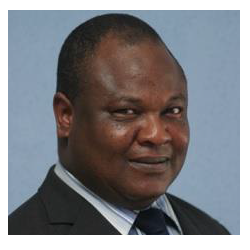 |
Turning learning right side up: Putting education back on track |
Education should be a lifelong enterprise, a process enhanced by an environment that supports to the greatest extent possible the attempt of people to "find themselves" throughout their lives, For too long, we have educated people for a world that no longer exists, extinguishing their creativity, and instilling values antithetical to those of a free, 21st century democracy. The principal objective of education as currently provided is to ensure the maintenance and preservation of the status quo—to produce members of society who will not want to challenge any fundamental aspects of the way things are. Traditional education focuses on teaching, not learning. It incorrectly assumes that for every ounce of teaching, there is an ounce of learning by those who are taught. Being taught is, to a very large extent, boring, and much of its content is seen as irrelevant. It is the teacher, not the student, who learns most in a traditional classroom.
Without motivation, no amount of teaching can produce learning. Motivation comes from within, not from without—it can not be imposed on students. With motivation, young students and adults learn, and they do so by means they select. Most of what we learn before, during, and after attending schools we learn without it being taught to us. For example, some schools have done away with reading instruction altogether; these schools allow children to acquire that skill when they seek it on their own. They eventually do, some at age 4 and some at age 12. Reading disorders are extremely rare in such schools. In the old one-room schoolhouse, the students taught each other. The teacher was a resource that students could call on when they wanted help.
Mass education was explicitly developed to mold naturally unruly children into compliant, obedient young people. Inspired by the Industrial Revolution, schools were, and still are, designed and operated as much like factories as possible. Incoming students are treated as raw material to be processed into saleable products. Creativity is actively suppressed, and in most schools conformity— which is anathema to creativity—is valued instead.
In addition, schools are obviously run more for the benefit of those employed in the system than to enable students to learn. Teachers, like employees in any system, try to ensure their job security by requiring students to be taught subjects they, the teachers, know. The explosion in the number of employees working in the educational system is awesome, and worrisome. It would appear at first blush that, given the finite number of children in schools, the number of people employed in the system would be limited. Not so. Here is a sample of the ways used to continually expand employment in the system.
· Reducing class sizes.
· Adding subjects into curricula.
· Monitoring the “effectiveness” of teaching through frequent testing at every level, and “research” based on test results.
· Increasing the number of students who fall below the desired level of achievement using test
scores; hence, increasing “remedial” education. Educators and educational planners spend a good deal of time deciding what subjects students should be taught. This activity is based on the assumption that they know what students are going to need to know when they finish their schooling. This assumption is false for two reasons: a very large proportion of students will not practice in the field for which they were educated, and because the rate of innovation is constantly increasing. What they learn in school is made obsolete more and more quickly with the passage of time…
Russell Ackoff and Daniel Greenberg
Related Articles

|
Gain Report: Nigeria's rice imports increaseReport Highlights: Nigeria's rice imports have increased largely because imported parboiled rice competes with other basic food staples. The decision of Government of Nigeria (GON) to ban rice imports through its land borders has somehow reduced cross-border smuggling. Furthermore, rice importer [Read more]
|
Posted: 15 years ago |

|
Thinking Through Problem SolvingChange hits hard, fast, and often. It shifts our focus, changes our direction, and alters our plans. Change leaves us stumped by questions we are not prepared to answer and searching for questions that we never thought to ask. Left on the road, between what we were once sure of and the indecision of [Read more]
|
Posted: 16 years ago |

|
Recent Changes of Guards at the Central Bank of Nigeria1. Is Nigeria developing a Single-Term Syndrome?
The appointment of a new governor to lead the Central Bank of Nigeria (CBN) from June 2014 to June 2019 brings the number of persons so appointed since 29 May 1999 to four, although only the last two appointments were made after the 2007 CBN Act wa [Read more]
|
Posted: 12 years ago |


